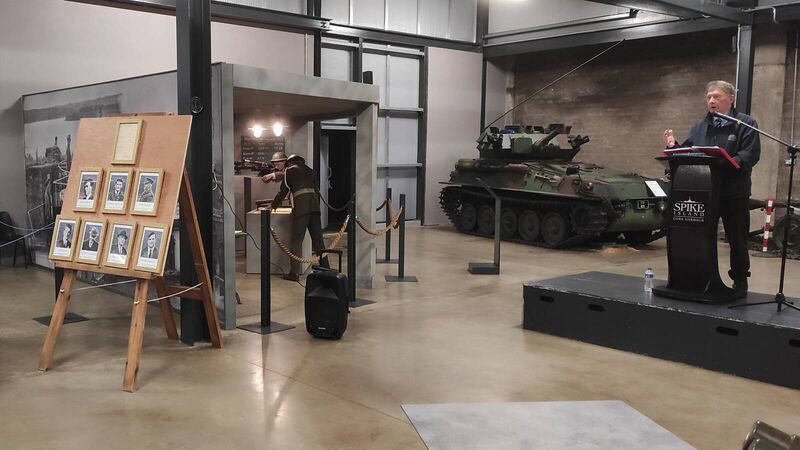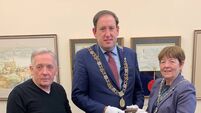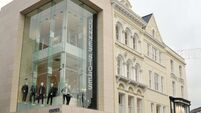Spike Island remembers daring 100 year old prison break

Spike Island has been remembering the seven men who became the only internees to escape from the former British military prison 100 years ago this week. Picture: Arek Maciak
A SPECIAL commemoration is being held on Spike Island this week to remember a group of IRA members who famously escaped from the former British military prison 100 years ago.
The three-day ceremony, now in its final day, has been attended by over 100 visitors as well as several relatives of the group, which included Cork men Richard Barrett, Patrick Buckley, Tom Crofts, Henry O’Mahony, and Maurice Twomey.
The other escapees were Jack Eddy of Co Waterford and William Quirke of Co Tipperary.
The men were just seven of the 1,200 IRA prisoners and internees (who were imprisoned without trial) detained at the famous jail during the end of the War of Independence in 1921.
Together, they hatched a daring plan to escape on the windy evening of November 10.
“They had started a hunger strike in August but that didn’t work and then they started a riot in September. During the riot, the British army forced them through a tunnel and out into the dry moat to sleep as punishment,” said historian and Spike Island deputy manager Tom O’Neill.

The men then scaled the 16-foot outer wall using a ladder made from chair rungs and electrical wire before making their way to shore where they barely missed being spotted by a soldier.
Jack Eddy then swam out to sever a rope holding a boat down with his teeth and the men used branches to paddle across the water.
The group eventually reached Cobh and couldn’t be rearrested because of a July 1921 truce. They were the only internees to ever escape from the jail.
The documents from that year are held in an archive in the UK, which Mr O’Neill accessed to learn more on the story and write a book, .
The men’s relatives were given a tour of some of the different areas the escapees travelled through last night, which was followed by a small ceremony where a framed photograph of each of the men was carried by a relative.

“It was particularly special because right up until the event we didn’t know how many people we could have and it sold out in minutes,” Mr O’Neill said.
"I was always so disappointed that we had no information for them.
“The only reason this story is being told is because the British army took their records with them. If they had been left here, more than likely they would have been lost.”










 App?
App?


